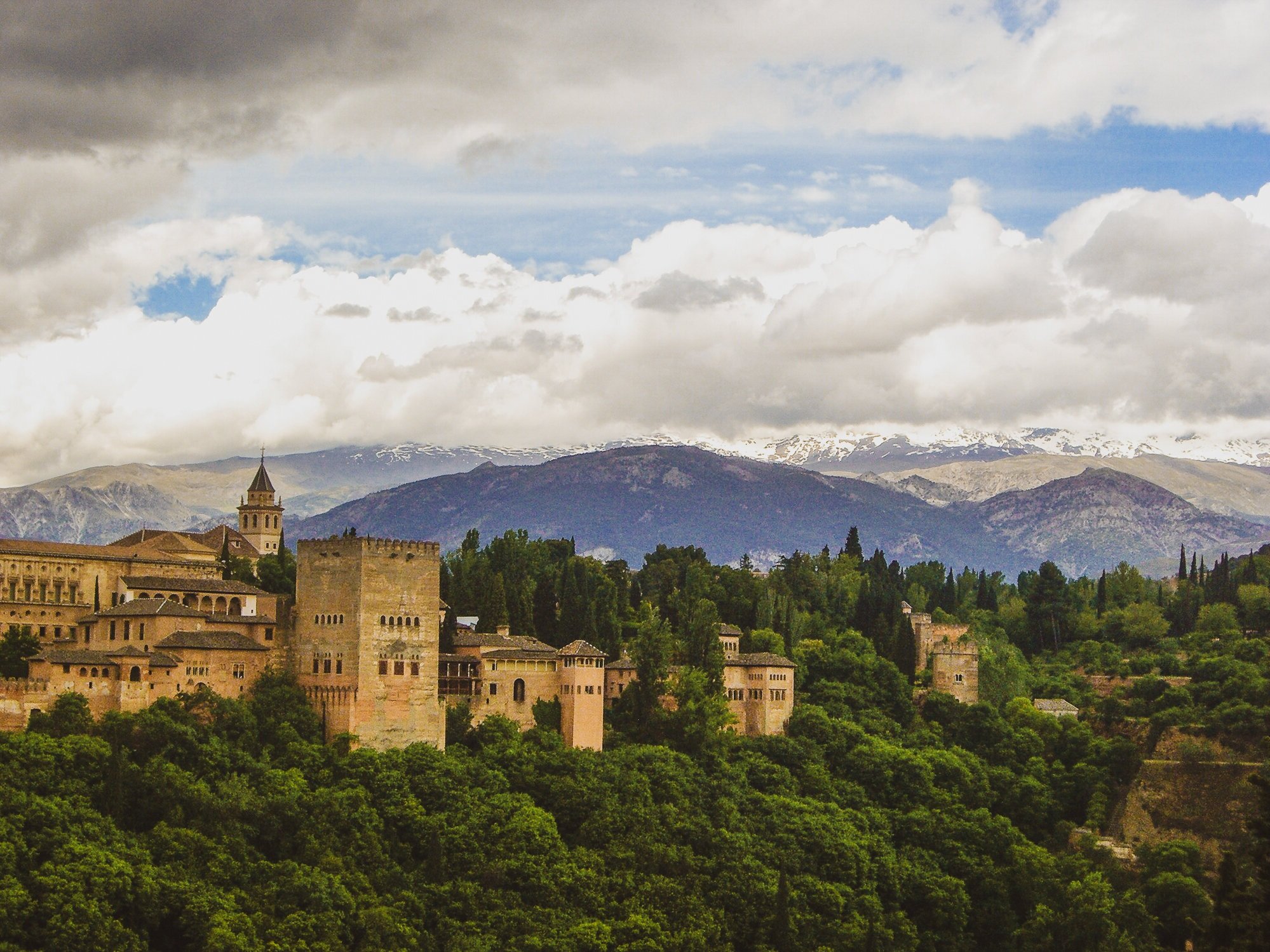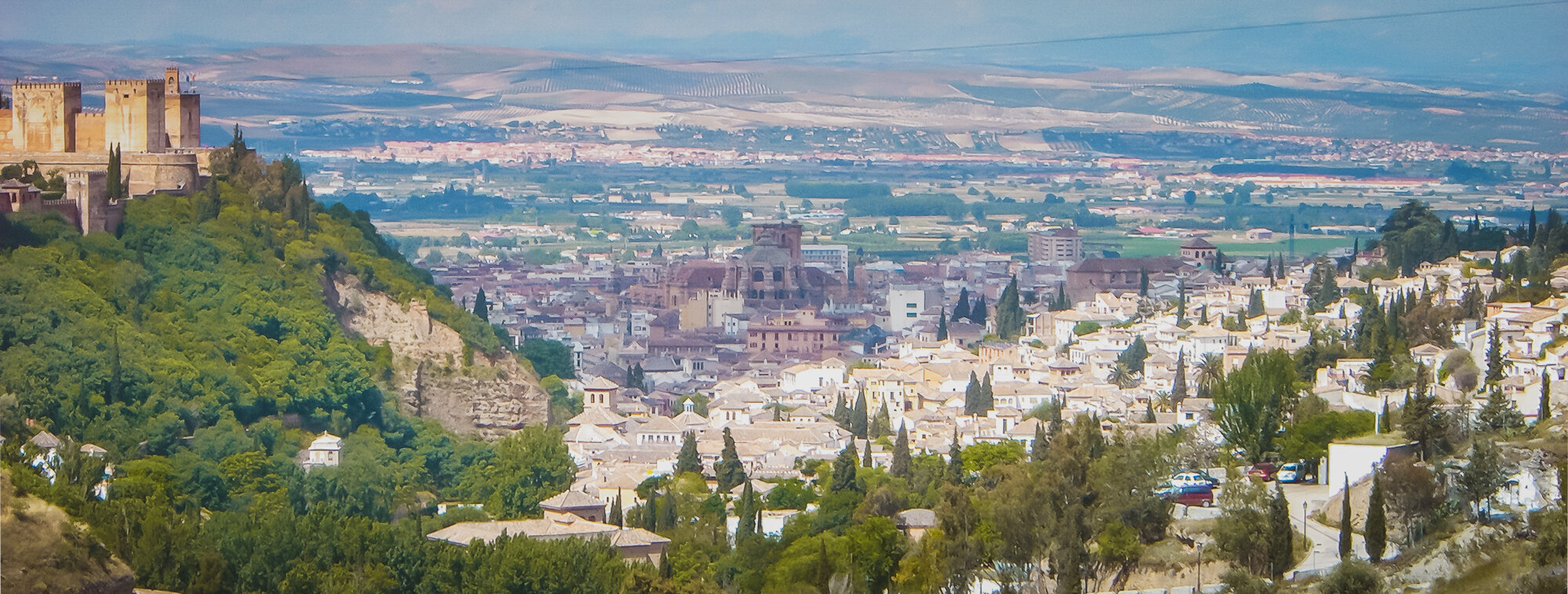
Forthcoming Historical Fiction Novel
Literary Fiction by Creative Writer Vanessa Joy Chandler
In 1491, a young woman divinely graced with a troublesome paranormal gift must choose between embracing her identity or complying with the injustice of the dreaded Inquisition.

The Story of How Veritas Came to Be
The idea for Veritas began at the age of 21 while I was living in Barcelona, Spain. One of my favorite places to sit quietly, think and pray was the Catedral, the main Cathedral downtown. I soon began to realize that although I witnessed a few older people sitting in contemplation like me, and some that would get on their knees and crawl to the front of the long nave, I was usually the only young person. For such a spectacular site as the Catedral in Barcelona, I was surprised.
I began to wonder, “What happened in Europe to turn so many people away from the ‘god’ that once consumed all aspects of society?”
As I began to research the answer, I stumbled across the greatest atrocity and censored crime of the church—the infamous Inquisition.
The first scene that came to mind was of a young woman in a confessional who described a supernatural experience to a priest. He condemned her and called her a heretic. This woman later became the heroine of the novel, Madalena. I began to imagine a tale in Medieval Spain during the Inquisition surrounding Madalena and two other main characters, a priest and a Muslim mercenary soldier. I also wondered what it would look like if spiritual forces came to life in the story. So, I began to intersect the stories together, the three main characters and a glimpse of how I would imagine supernatural world of angels and demons to be when interacting with humans.
Book Summary
Madalena is a young woman in Queen Isabella’s court who has been divinely graced with a heretical gift of visions and prophetic foresight. When the last Muslim territory of Iberia falls in 1491, the Inquisition threatens to annihilate Jews, Christians, Muslims, and those who do not convert or bow to Church authority. Together with a defiant priest and a Muslim mercenary soldier, Madalena embarks on a perilous journey that forces her to choose between embracing her identity or complying with injustice.


The Inquisition was a state as well as a church tribunal that was run by Dominican monks to discover, try and torture those who fell under suspicion of holding views contrary to the Church of Rome. Its vast and immeasurable cruelties are a ghastly memory in church annals. Although revered as saints, Queen Isabella and King Ferdinand of Iberia resurrected the Inquisition in Iberia (Spain) in 1481, and under the guise of “purification” permitted name-calling, pitiless penalties, torture, and murder of primarily Jews, but also Arabs and Christians. I believe that they most likely began their quest with good intentions, Isabella herself having opposed the harsh demands of the Inquisition at its commencement, yet I can only assume that with the growth of wealth and power, along with the hatred of heresy, their passionate zeal converted into hatred of people.
Long have I felt that the year 1492 was significant far beyond Columbus’ voyage, although fate may have provided the discovery of the New World to give Man hope of freedom from religious persecution. James Reston, Jr., to whom I credit much of what I have learned about this cataclysmic period in history, notes more at work than the defeat of a withering Moslem emirate in his historical analog Dogs of God,
Fourteen hundred and ninety-two is a year that can aptly be called apocalyptic both in the original meaning of the word, as revelation or disclosure, and in its more modern usage of colossal calamity. That so many important forces of history converged at one time invariably begs the question whether the hand of God was at work in the confluence. To the Christians, the Arabs, and the Jews of the late fifteenth century alike, there was no doubt. Such great and terrible things do not happen simultaneously at random. Providence had to be involved, and the major players were merely God’s instruments, either for glory or for disaster.[2]
An atmosphere of fear hovered over all of Spain and it was said,
Woe to the man or woman forced to enter the gloomy portals of the Inquisition—a fate worse than death awaited them… No high office or lofty dignity in church or state, no eminence or science, no purity in life, could save a man from its secret, sudden attack.[3]
Suspicion alone for something as simple as not attending mass or practicing Jewish celebrations or rituals would cause one to be suspected of heresy. In the first nine years of the official Inquisition in Spain (1481-1490), three thousand lives were unjustly burnt at the stake. Thirty thousand offenders suffered lesser punishments.[4]
Historical Context that Inspired the Story of Veritas
“Benedictum qui venit in nominee Domini.” [1]
It is little known or remembered that eight hundred prior to 1492, the southern Andalusian Kingdom of Granada thrived under the rule of the Arab Moslems (Moors). At the pinnacle of their rule, the Moors had established the most enlightened and modern society in all of Europe. Each of what were known as the “Three Great Religions,” Christianity, Islam and Judaism, learned and reaped from one another, living in peace and respect. Church and State were not mixed. Neither did the law force religious practices under one religion over another.
At the dawn of 1492, under what they believed to be a divine mandate, Isabella and Ferdinand recaptured the Kingdom of Granada. Their mindset was the same feeble-minded thinking that had backed the Crusades, tearing through, pillaging and raping innocent lands and peoples. They hoped that reuniting Spain under Christian rule would eventually lead to ridding the Holy Land of infidels, or nonbelievers. As the king and queen entered the prized jewel of the Moors for the first time, the Al-Hamra palace, their very presence contradicted the decree that its walls bore, “Do not be afraid to seek justice for here you will find it.”[5] Some blame Torquemada, the Grand Inquisitor, for having sanctioned and pushed the sovereigns into even harsher edicts as the Inquisition flourished. Nevertheless, those who were bent on reclaiming territory “for Christ” lost His very nature in the process. Christ advocated love and forgiveness and challenged the Pharisees, the religious leaders of His day, stating that they cared more for their rituals than for the truth of God. So it seems that Isabella and Ferdinand were caught in the web of religion, advocating deeds and rituals above Christ’s love. He advocated that all men be seen as equal, whether Jew, Greek, male or female. They were blind to the fact that when Christ commissioned his disciples to “make disciples of nations,” He did not mean forced conversions. The idea of forced conversion defeats the purpose for which He created Mankind, for love is only love if it involves choice. While Christ died as a symbol of freedom, the Sovereigns committed merciless killings in His name. After all, priests had for some time preached from their pulpits that Jews were evil murderers of Christ.
What occurred in Spain in 1492 caused such upheaval, despair and witchery that it is no wonder that the name “Christian” brings with it such shameful connotations. History repeats itself until we are capable of learning from it, and so it has for years on end. Although there were some groups that arose and challenged the horrors of the Inquisition, rampant fear had long since overtaken many hearts. Most could not imagine fighting against the sovereigns who were thought to be incarnate themselves. Chroniclers often wrote of Isabella’s beauty, which seemed to divinely emanate. She was likened to the woman in Revelation Twelve who bore a great son and protected him from the ravenous dragon. Her kingdom symbolized the child, and the dragon’s followers, the infidels. Some went so far as to disinherit Israel as the tribe of God, “It is clear that this queen is moved to do things by divine inspiration…” it was said, because “God has chosen the tribe of Isabella which he prefers.” [6]
My account of 1492 and its surrounding years is small compared to the depths of Spain’s religious history. I have woven historical fact—including dates, places and figures—into this fictitious tale, though I have taken liberty with dramatization and the timeline of events. I have also created characters, happenings and fantastical elements to illustrate how the Heavens noted in biblical scripture might clash before us—if we could but see. These years in history were surely a cataclysmic avalanche in the spiritual realms that lie beyond our eyes, our reach, and our depth of understanding. I imagine that witnessing the stories would be like watching a torrential hurricane of darkness and light, and just perhaps, something like this… With that being said, let us begin a journey into another place, another time within this vast epoch of what we call Earth.




